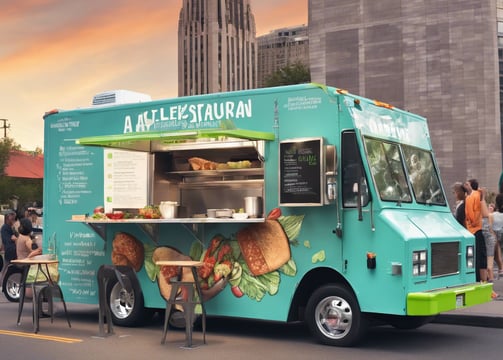Sustainable Vegan Meals for South America
Expanding access to healthy plant-based meals sustainably across underserved communities in South America.
Rated 5 stars by customers
★★★★★
Project Overview
Our mission is to serve healthy, plant-based meals to people in need, providing sustenance while promoting sustainability and animal welfare. This project aims to expand our existing operations in South America by increasing our meal production and distribution capacity, improving efficiency, and adopting sustainable practices in food preparation and delivery.
Empowering Lives Through Vegan Meals
Comida para la Vida South America is dedicated to expanding vegan meal distribution, promoting sustainability, and serving underserved communities with healthy plant-based options across South America through our $2 million initiative.


Our Mission
Our Vision
With new kitchens, eco-friendly vehicles, and additional distribution centers, we aim to double our capacity, reduce food waste, and lower carbon emissions while ensuring nutritious meals reach those in need.
Sustainable Vegan Meals
Expanding vegan meal distribution to serve underserved communities while promoting sustainability initiatives.


Eco-Friendly Vehicles
Utilizing green transportation to reduce carbon emissions during meal distribution efforts.
New Kitchens
Establishing kitchens to efficiently prepare plant-based meals for those in need.
Food Waste Reduction
Implementing strategies to minimize waste and promote sustainability in meal service.
How much does it cost?
Project Goals
Expand Distribution Capacity: Double meal distribution across South America over the next two years by setting up additional distribution centers in key regions.
Improve Sustainability: Use eco-friendly vehicles and energy-efficient kitchens to reduce our carbon footprint while serving more meals.
Enhance Operational Efficiency: Streamline food preparation, storage, and distribution systems to reduce waste and costs.
Budget Breakdown
Total Budget: $2 million
Cooking Equipment and Mass Preparation Kitchens: $500,000
Purchase commercial-grade cooking equipment (stoves, ovens, mixers).
Build or lease kitchens in major urban centers (e.g., Bogotá, Lima, Santiago).
Install energy-efficient appliances and renewable energy systems (e.g., solar panels).
Vehicles for Distribution: $400,000
Acquire eco-friendly delivery vehicles (e.g., electric or hybrid trucks).
Maintenance and fuel budget for 2 years.
Storage Units: $200,000
Build or lease refrigerated storage facilities for food and raw materials.
Secure storage for ingredients to avoid spoilage and ensure steady supply.
Staffing: $400,000
Hire additional kitchen staff, drivers, warehouse personnel, and administrative support for operations in multiple countries.
Training budget for staff on sustainability practices, food handling, and distribution logistics.
Operational Budget: $300,000
Food supplies (e.g., grains, vegetables, spices) for two years.
Packaging and distribution materials (biodegradable packaging, boxes).
Maintenance of cooking and refrigeration equipment.
Setting Up Distribution Centers: $200,000
Establish and equip five new distribution hubs across South America (e.g., Argentina, Brazil, Peru, Chile, Colombia).
Build partnerships with local communities, organizations, and food banks for distribution.
Operational Plan
1. Phase 1 (Months 1-6): Infrastructure Development
Identify locations for new kitchens, storage, and distribution centers based on meal demand.
Purchase and install cooking equipment and vehicles.
Hire and train staff.
2. Phase 2 (Months 6-12): Initial Expansion
Begin operations in five key regions.
Launch meal distribution programs at full capacity in target areas.
3. Phase 3 (Months 12-24): Scaling and Doubling Capacity
Set up additional distribution points and extend coverage to rural and underserved areas.
Scale up meal production and distribution based on initial success metrics.
Sustainability and Efficiency Plan
Eco-Friendly Vehicles: We will use electric and hybrid vehicles to reduce fuel consumption and emissions.
Energy-Efficient Kitchens: Kitchens will be equipped with energy-efficient appliances, and solar power will be used where feasible.
Sustainable Sourcing: All meals will use locally sourced, plant-based ingredients, supporting local farmers and reducing transportation costs.
Waste Reduction: Implement zero-waste policies in all kitchens and distribution centers, including composting and recycling programs.
Monitoring and Evaluation
We will track the following key performance indicators (KPIs) to measure success:
Meals Distributed: Target of doubling the current meal distribution capacity.
Reduction in Carbon Footprint: Monitor emissions from delivery vehicles and kitchen operations.
Cost per Meal: Measure efficiency improvements in meal preparation and distribution.
Impact on Local Communities: Survey beneficiaries and local partners to evaluate the project’s effectiveness.
Conclusion
By securing this $2 million grant, Food for Life will expand its operations throughout South America, doubling our meal distribution capacity while remaining environmentally responsible. This project will not only address hunger in the region but will also promote sustainability and serve as a scalable model for future expansions.
Vegan Initiative
Expanding meal distribution across South America for sustainability.


Sustainable Meals
Promoting plant-based meals for underserved communities effectively.


Eco-Friendly Vehicles
Reducing carbon emissions with our new distribution methods.




New Kitchens
Setting up facilities to enhance meal preparation efficiency.
Food Waste
Implementing strategies to minimize waste and maximize impact.
→
→
→
→
Comida para la Vida has transformed our community with delicious vegan meals. Their commitment to sustainability and reducing food waste is truly inspiring!
Maria Lopez

★★★★★
Sustainable Meals
Expanding vegan meals for underserved communities across South America
CONTACT
WE WANT TO HEAR FROM YOU
© 2024. All rights reserved.
